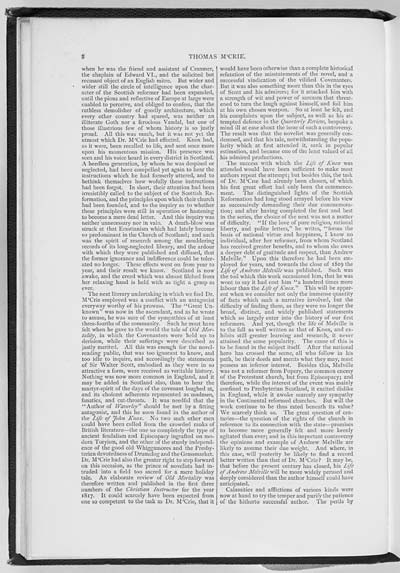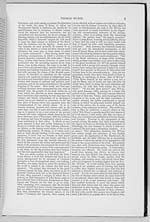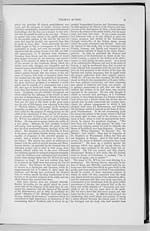8
when he was the friend and assistant of Cranmer,
the chaplain of Edward VI., and the solicited but
recusant object of an English mitre. But wider and
wider still the circle of intelligence upon the char-
acter of the Scottish reformer had been expanded,
until the pious and reflective of Europe at large were
enabled to perceive, and obliged to confess, that the
ruthless demolisher of goodly architecture, which
every other country had spared, was neither an
illiterate Goth nor a ferocious Vandal, but one of
those illustrious few of whom history is so justly
proud. All this was much, but it was not yet the
utmost which Dr. M 'Crie had effected. Knox had,
as it were, been recalled to life, and sent once more
upon his momentous mission. His presence was
seen and his voice heard in every district in Scotland.
A heedless generation, by whom he was despised or
neglected, had been compelled yet again to hear the
instructions which he had formerly uttered, and to
bethink themselves how wofully these instructions
had been forgot. In short, their attention had been
irresistibly called to the subject of the Scottish Re-
formation, and the principles upon which their church
had been founded, and to the inquiry as to whether
these principles were still in operation or hastening
to become a mere dead letter. And this inquiry was
neither unnecessary nor in vain. A death-blow was
struck at that Erastianism which had lately become
so predominant in the Church of Scotland; and such
was the spirit of research among the mouldering
records of its long-neglected library, and the ardour
with which they were published and diffused, that
the former ignorance and indifference could be toler-
ated no longer. These effects went on from year to
year, and their result we know. Scotland is now
awake, and the creed which was almost filched from
her relaxing hand is held with as tight a grasp as
ever.
The next literary undertaking in which we find Dr.
M'Crie employed was a conflict with an antagonist
everyway worthy of his prowess. The "Great Un-
known" was now in the ascendant, and as he wrote
to amuse, he was sure of the sympathies of at least
three-fourths of the community. Such he must have
felt when he gave to the world the tale of Old Mor-
tality, in which the Covenanters were held up to
derision, while their sufferings were described as
justly merited. All this was enough for the novel-
reading public, that was too ignorant to know, and
too idle to inquire, and accordingly the statements
of Sir Walter Scott, embodied as they were in so
attractive a form, were received as veritable history.
Nothing was now more common in England, and it
may be added in Scotland also, than to hear the
martyr-spirit of the days of the covenant laughed at,
and its choicest adherents represented as madmen,
fanatics, and cut-throats. It was needful that the
"Author of Waverley" should be met by a fitting
antagonist, and this he soon found in the author of
the Life of John Knox. No two such other men
could have been culled from the crowded ranks of
British literature�the one so completely the type of
ancient feudalism and Episcopacy ingrafted on mo-
dern Toryism, and the other of the sturdy independ-
ence of the good old Whiggamores and the Presby-
terian devotedness of Drumclog and the Grassmarket.
Dr. M'Crie had also the greater right to step forward
on this occasion, as the prince of novelists had in-
truded into a field too sacred for a mere holiday
tale. An elaborate review of Old Mortality was
therefore written and published in the first three
numbers of the Christian Instructor for the year
1817. It could scarcely have been expected from
one so competent to the task as Dr. M'Crie, that it
would have been otherwise than a complete historical
refutation of the misstatements of the novel, and a
successful vindication of the vilified Covenanters.
But it was also something more than this in the eyes
of Scott and his admirers; for it attacked him with
a strength of wit and power of sarcasm that threat-
ened to turn the laugh against himself, and foil him
at his own chosen weapon. So at least he felt, and
his complaints upon the subject, as well as his at-
tempted defence in the Quarterly Review, bespoke a
mind ill at ease about the issue of such a controversy.
The result was that the novelist was generally con-
demned, and that his tale, notwithstanding the popu-
larity which at first attended it, sank in popular
estimation, and became one of the least valued of all
his admired productions.
The success with which the Life of Knox was
attended would have been sufficient to make most
authors repeat the attempt; but besides this, the task
of Dr. M'Crie had already been chosen, of which
his first great effort had only been the commence-
ment. The distinguished lights of the Scottish
Reformation had long stood arrayed before his view
as successively demanding their due commemora-
tion; and after having completed the first and best
in the series, the choice of the next was not a matter
of difficulty. "If the love of pure religion, rational
liberty, and polite letters," he writes, "forms the
basis of national virtue and happiness, I know no
individual, after her reformer, from whom Scotland
has received greater benefits, and to whom she owes
a deeper debt of gratitude and respect, than Andrew
Melville." Upon this therefore he had been em-
ployed for years, and towards the close of 1819 the
Life of Andrew Melville was published. Such was
the toil which this work occasioned him, that he was
wont to say it had cost him "a hundred times more
labour than the Life of Knox" This will be appar-
ent when we consider not only the immense quantity
of facts which such a narrative involved, but the
difficulty of finding them, as they were no longer the
broad, distinct, and widely published statements
which so largely enter into the history of our first
reformers. And yet, though the life of Melville is
to the full as well written as that of Knox, and ex-
hibits still greater learning and research, it never
attained the same popularity. The cause of this is
to be found in the subject itself. After the national
hero has crossed the scene, all who follow in his
path, be their deeds and merits what they may, must
possess an inferior interest. Besides this, Melville
was not a reformer from Popery, the common enemy
of the Protestant church, but from Episcopacy; and
therefore, while the interest of the event was mainly
confined to Presbyterian Scotland, it excited dislike
in England, while it awoke scarcely any sympathy
in the Continental reformed churches. But will the
work continue to be thus rated beneath its value?
We scarcely think so. The great question of cen-
turies�the question of the rights of the church in
reference to its connection with the state�promises
to become more generally felt and more keenly
agitated than ever; and in this important controversy
the opinions and example of Andrew Melville are
likely to assume their due weight. And where, in
this case, will posterity be likely to find a record
better written than that of Dr. M'Crie? It may be,
that before the present century has closed, his Life
of Andrew Melville will be more widely perused and
deeply considered than the author himself could have
anticipated.
Calamities and afflictions of various kinds were
now at hand to try the temper and purify the patience
of the hitherto successful author. The perils by

![]() Universal Viewer |
Universal Viewer | ![]() Mirador |
Large image | Transcription
Mirador |
Large image | Transcription
![]()

